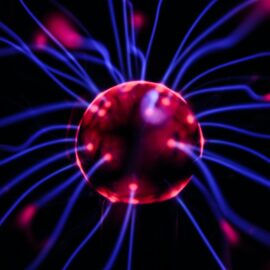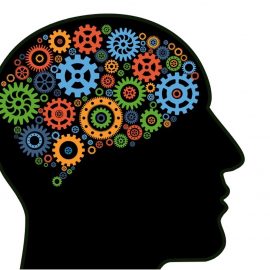

This article is an excerpt from the Shortform book guide to "Fast. Feast. Repeat." by Gin Stephens. Shortform has the world's best summaries and analyses of books you should be reading.
Like this article? Sign up for a free trial here .
How does fasting promote weight loss? What is the mechanism behind the weight loss effect of fasting?
Your body has a powerful built-in fat-burning mechanism that’s activated by fasting. However, weight loss isn’t immediate once you start fasting. Since our bodies are used to overeating, we need to teach them to access our fat stores again. When you start fasting, your body won’t yet know how to burn fat and will instead slow your metabolism to save energy until you can eat again.
Here’s a look at the science behind fasting and weight loss.
How Fasting Promotes Effective Fat Loss
In her book Fast. Feast. Repeat., Gin Stephens explains the science behind fasting and weight loss. When we eat, our blood glucose (blood sugar) levels increase. In response, our bodies release insulin, a hormone that stores excess glucose in the liver and muscles as glycogen. If any blood glucose remains after this step, insulin converts it into fat and stores it away.
By storing this glucose-based energy, insulin lowers your blood glucose. When your blood sugar runs out and you need energy, the pancreas signals for your liver to release some of its stored glycogen to use as energy. When those glycogen stores run out, you enter the fasted state.
In the fasted state, your body converts your fat stores into ketones, a fat-based energy source. Put another way, you’ll burn your fat as fuel (a state called ketosis). We evolved to burn fat for energy when food was scarce, so you’ll do so only after depleting your blood glucose and glycogen stores.
Since insulin releases when you eat, fasting allows insulin levels to decrease. Then you can use up your liver’s stores of glycogen and begin to access your fat stores. If you fast often enough, your body will “remember” it has fat stores to burn for energy.
Unlike dieting, where you never stop eating long enough to start fasting, intermittent fasting promotes sustainable fat loss. Each time you burn fat for fuel, you’ll lose some weight—and with fasting, you’ll also eat enough each day, so you won’t cause your metabolism to slow down.
Learn to Eat Intuitively
With fasting, you can stop worrying about conflicting diet advice. Instead, learn to intuitively regulate your eating by getting back in touch with your body’s natural appetite signals.
Ghrelin signals when we’re hungry, and leptin signals when we’re satisfied. As infants, we can easily sense these signals and know when we’re hungry or full. But we lose touch with them as we age, making it easy to overeat and gain weight. According to Stephens, intermittent fasting helps you tune back into your appetite signals. When you’ve tuned back in, you can use those natural signals to eat what feels best to you and to “stop when satisfied.”
When tuning back in, it takes time for your appetite signals to reset. To help get you there, Stephens offers the following tactics:
- Tactic #1: Eat less than you normally would—You can do this by remembering “hara hachi bu,” an Okinawan practice that means “eat until 80% full.”
- Tactic #2: Be mindful of your experience—If you notice a “sigh” of contentment, that’s one signal to stop eating. If you notice that the food has lost its initial deliciousness, that’s another signal.

———End of Preview———
Like what you just read? Read the rest of the world's best book summary and analysis of Gin Stephens's "Fast. Feast. Repeat." at Shortform .
Here's what you'll find in our full Fast. Feast. Repeat. summary :
- How intermittent fasting can help you lose weight, feel better, fight disease, and live longer
- An explanation of the cutting-edge science that supports fasting
- How to follow a four-week quickstart program to adapt to this new lifestyle






